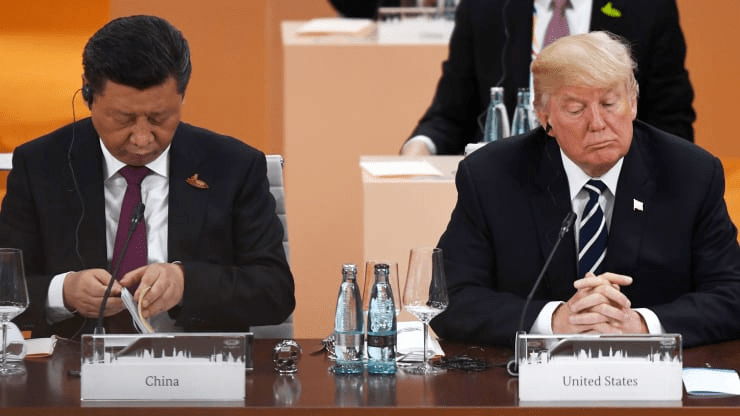Political tensions between the U.S. and China have thrust technology and supply chains into the spotlight and threaten to fracture the internet. Over the past few years, a growing chorus of voices have predicted a so-called splinternet, the idea that a kind of two-track internet could appear — one led by the U.S. and one by China.

While there is no unified definition of the splinternet, experts told CNBC’s “Beyond the Valley” podcast, that data is going to play a key part in the scale of any kind of fracturing of the internet that we use today.“I think the data issue and data governance issue is really going to be the critical thing here in terms of how far … we get a split, splinternet, or some fragmentation of cyberspace,” Paul Triolo, head of the geo-technology practice at Eurasia Group said.
To some extent, the split in the global internet can be seen already. For a while, China has effectively blocked many American technology companies such as Google and Facebook from operating there. In China, the apps people use are very different. Instead of Amazon, there is Alibaba-owned Taobao or JD.com. WeChat is the messaging app of choice for over a billion people. And Beijing forces technology companies to censor content deemed politically sensitive.
The U.S.‘s campaign against Chinese technology companies has focused on accusations that they represent a national security threat because of the way they could handle American users’ data. For example, in his Aug. 6 executive order threatening to ban social media app TikTok, President Donald Trump said the service collects “vast swaths of information” on Americans which could get into the hands of the Chinese Communist Party.
The EU and U.S. had an agreement known as the privacy shield. This is a framework to provide companies on both sides of the Atlantic with a mechanism to comply with data protection requirements when transferring personal data from the European Union and Switzerland to the United States. This agreement is used by thousands of companies.
But the European Court of Justice, the EU’s top court, struck the agreement down earlier this year, saying that it does not adequately protect the privacy of European citizens. The concern in this case focused on some of the laws the U.S. has around surveillance of its citizens. The court was concerned that U.S. law fails to protect people’s personal data from government surveillance in the same way European law does.
Stricter rules around data flows could lead to so-called data neutral epicenters, according to Abishur Prakash, a geopolitical specialist at the Center for Innovating the Future (CIF), a Toronto-based consulting firm. He referenced the TikTok deal that is still being negotiated. As it stands, a new U.S.-based entity called TikTok Global will be set up. Oracle and Walmart will own 20% of that. ByteDance said it will own the remaining 80%. Oracle however contests that ByteDance will have “no ownership” of TikTok Global.
U.S.-China tensions could split the internet — and data will play a key role in how far that goes, CNBC, Oct 20